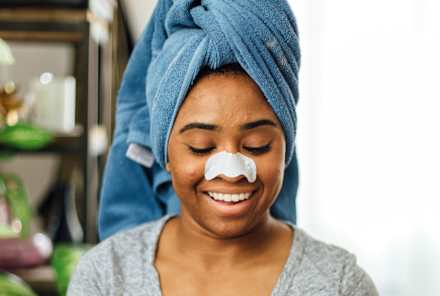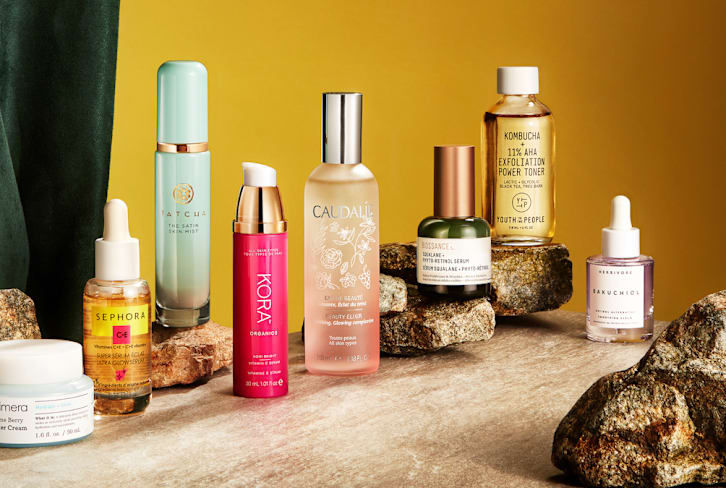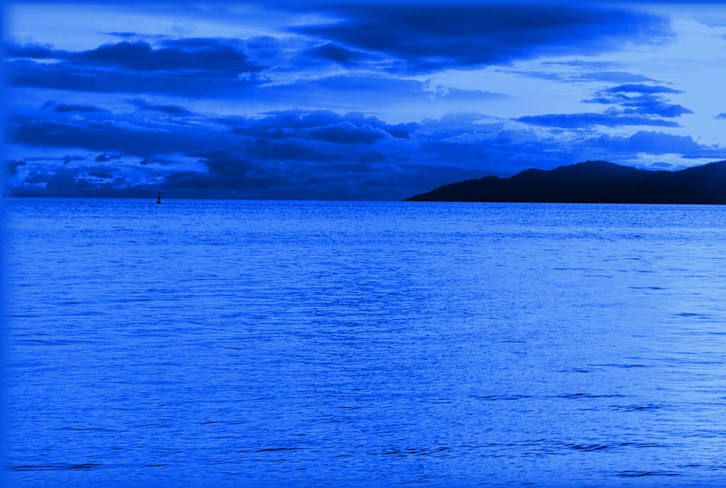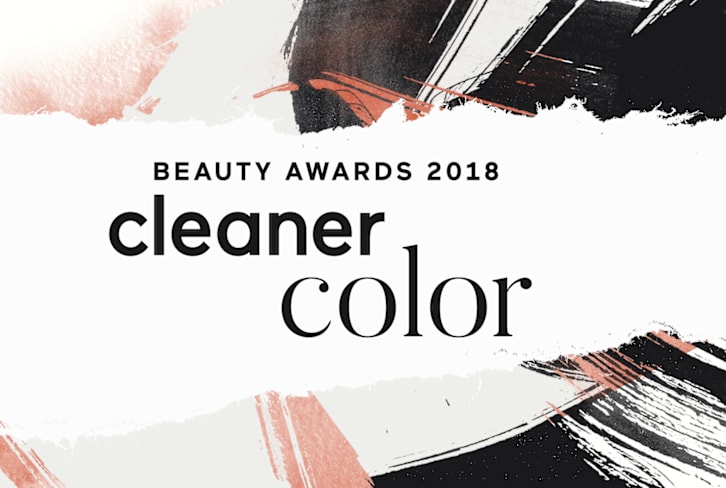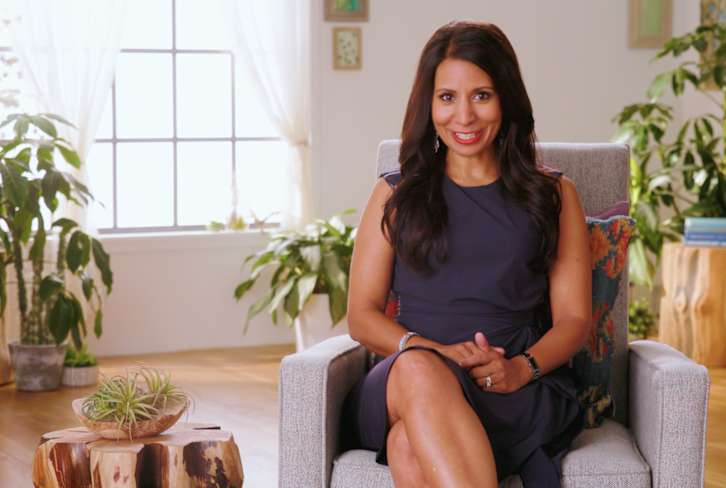Advertisement
My Face Story: How I Went Off Accutane & Healed Cystic Acne With Nontoxic Skin Care
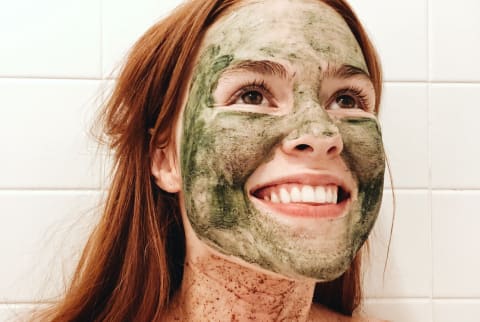
My entire life I was complimented on my skin—from friends to people passing by on the street. My skin care routine was almost always the topic of discussion. But the cold truth was: I didn't have one! I never had to worry about my skin growing up. I slept in my makeup more times than I should've, ate Taco Bell on a regular basis, and the suggestion of skin care was on a totally different planet.
That is—until I turned 19. Practically overnight my skin went from a clear, smooth, totally blemish-free complexion to completely covered in angry, itchy, inflamed cystic acne. Never having dealt with severe acne before, I felt completely lost and had no clue what to do. Thinking I could deal with the problem myself, I immediately headed to my local beauty supply store and began asking for recommendations. Over the next three months, I bought everything from salicylic acid and retinol to tea tree oil and sheet masks, only to watch my skin continuously get worse no matter what I tried.
Changing what I was putting in my body was sort of a spiritual awakening. It opened my eyes to how our bodies operate from the inside out and how everything within ourselves is interconnected.
I was feeling defeated, so it was finally time to call the dermatologist. What other options did I have? Everyone promised me this was the right thing to do, but for some reason I couldn't shake this gut feeling I had that it wasn't. At first we tried antibiotics—everything ending in "-cycline." That only lasted for a quick few weeks as it created other complications like nausea and dizziness. From there we moved on to topicals. Epiduo, Retin-A, and Clindagel are just a few I tried. But still, my cystic acne continued to spread.
To this day I still remember the appointment when she muttered that dreaded word: "Accutane." I'm pretty sure I felt my heart stop. No, I thought, I am not putting myself through that, no way, absolutely not. However, there are certain instances in life when you find yourself desperate and hopeless and tired of searching for answers. That was me in this moment; I was at my wit's end. Plus, she promised that I would need only one six-month course—then my skin would be clear for the rest of my life. I was willing to make the sacrifice to never worry about my skin again, and so I took the plunge, diving in headfirst.
And...my skin completely cleared! It was 10 months of pure acne-free bliss, and then BAM! My cystic acne returned. Slowly but surely, it started with small whiteheads and ended up with six cysts by the time I decided to visit the dermatologist again. I was devastated. I couldn't help but wonder how I was in this "5 percent" pool of individuals that Accutane can't help. Was there something else wrong with me? Something going on internally? I needed answers.
My turning point.
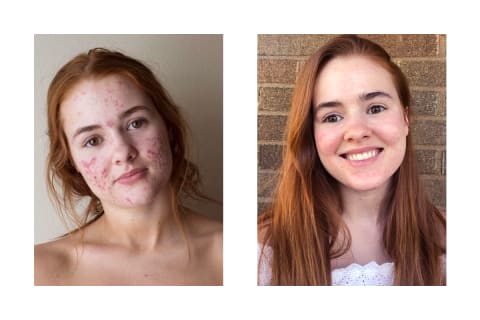
Unfortunately, my dermatologist told me exactly what I didn’t want to hear: that I needed a second course of Accutane, this time at a higher dose for a longer amount of time. At this point I was suffering from insomnia, back pain, and blurry night vision among other long-term side effects. I wasn't going to roll the dice and take my chances on a second course; what would make it any different? And what if I reacted worse? I wasn't about to find out. This time I decided to listen to my gut and take my skin into my own hands.
I remember reading about the correlation between dairy and acne. Dairy contains IGF-1, an inflammatory growth hormone that can trigger cystic acne in certain individuals. The day after I left the dermatologist's office, I decided to cut it out of my diet. Within three months my acne went from inflammatory, irritated cystic acne to moderate, much smaller, under-the-skin bumps. My skin cleared drastically! I couldn't believe it actually worked. From that point forward, I started diving deeper into the relationship between diet, hormones, and their overall effect on skin health.
The healing process.
After cutting out dairy, I started trying new ways of eating to see what else could possibly make a difference in my skin. I tested veganism, a gluten-free diet, drinking the right amount of water, reducing caffeine, and avoiding alcohol and sugar altogether. With each change, I noted how my skin was either positively or negatively affected. Some of the changes I've stuck by long-term while others didn't make a dime of difference.
Changing what I was putting in my body was sort of a spiritual awakening. It opened my eyes to how our bodies operate from the inside out and how everything within ourselves is interconnected. I wanted to know what else could be affecting my skin; were the things I was putting on my face topically actually helping or making it worse? And then there was my lifestyle. Was the staying up all night, going out partying every weekend, working two jobs to get by having an impact on my skin? The answer was a resounding yes. Overall, I've found that three main things affect my skin.
Diet, stress, and simple skin care.
The first thing I did was look at what I was putting into my body.
As far as diet goes, I've upped my water intake drastically, increased the quantity of veggies I eat, started juicing daily, given up dairy and gluten, and cut back on alcohol and caffeine. It might seem like a lot of big changes depending on your lifestyle, but it's important to note that these things slowly happened over the course of two years—not all at once. Through changing my diet, I feel that I've also been able to balance my blood sugar levels along with my hormones, both of which are extremely important when it comes to the clarity of your skin.
Next, I looked at what I was putting on my body.
I swapped out all my skin care, shampoo, body wash, even toothpaste for clean, nontoxic versions that wouldn’t disrupt my hormones or irritate my skin. For me personally, I've found that over-the-counter products and prescription topicals were too harsh. They would leave my skin feeling stripped and raw, only to further exacerbate breakouts. Clean beauty products work well for me because they're effective on my acne yet gentle enough for sensitive skin.
Last, I observed how my body was feeling.
More times than not, I was feeling run-down, anxious, and stressed out for no apparent reason. Cutting back on caffeine and working out on a consistent basis helped to initially balance my cortisol levels, but I needed a little extra boost. That’s when I discovered adaptogens! Some of my favorites so far are ashwagandha, reishi, cordyceps, and he shou wu.
This is not to say that skin clarity is the ultimate sign of health—even when I'm eating clean, my skin is still acne prone. And vice versa—some of my clear-skinned pals eat processed foods and don't exercise. Genetics play a huge role when it comes to the clarity of our skin, and I personally think we need to get to a place where there are no longer assumptions made of those who suffer with acne—like that they're unhygienic, don't eat well, or are lazy for not taking care of their skin. We don't always have complete control, and I think this is important to realize wherever you are in your skin story.
I used to believe that acne happens for no reason. Now I know that major cystic acne can be a physical symptom of an internal imbalance. To treat it fully, you have to determine the root cause and tackle that headfirst. You have to be fully conscious of the everyday lifestyle choices you're making and whether they're having a positive or negative effect.
For me, it's all about finding balance within my diet, lifestyle, and frankly, within myself.
If you want more cystic acne success stories, check out another account of the healing benefits of natural products as well as the magic ingredient many acne sufferers swear by.
Watch Next
Enjoy some of our favorite clips from classes
Enjoy some of our favorite clips from classes
What Is Meditation?
Mindfulness/Spirituality | Light Watkins
Box Breathing
Mindfulness/Spirituality | Gwen Dittmar
What Breathwork Can Address
Mindfulness/Spirituality | Gwen Dittmar
The 8 Limbs of Yoga - What is Asana?
Yoga | Caley Alyssa
Two Standing Postures to Open Up Tight Hips
Yoga | Caley Alyssa
How Plants Can Optimize Athletic Performance
Nutrition | Rich Roll
What to Eat Before a Workout
Nutrition | Rich Roll
How Ayurveda Helps Us Navigate Modern Life
Nutrition | Sahara Rose
Messages About Love & Relationships
Love & Relationships | Esther Perel
Love Languages
Love & Relationships | Esther Perel




